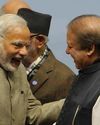Indian technical manpower can be trained for high-value-added emerging services in the era of mass commoditisation of hardware.

INDIAN IT IS running into a road-block, as the traditional services business model seems vulnerable. I attended the IESA’s (Indian Elec-tronic and Semiconductor Association) Vision Summit in Bangalore in February, and the implied question there was whether the vacuum could be filled by the other side of IT: electronics. It is not entirely clear that we can be saved by electronics, but it’s worth a shot.
Electronics may finally be coming into its own in India. Even though the concerned Indian ministry is MeitY, the Ministry of Electronics and Information Technology, the focus has been on software, given its status as a national champion over the last 20 years. And manufacturing is not one of India’s core competencies, many feel.
Besides, the shortcomings of India’s ecosystem have more of an impact in the electronics sector. Lack of reliable power and water, poor infrastructure, the skill sets of technical manpower, and the virtual absence of the semiconductor industry in India have all been problems. Semiconductor fabrication, a strategic industry, is a must if India is to have dependable and secure electronic devices, but that’s another story.
Apart from all this, there are social reasons too: the tradition in engineering in India has been to do theoretical things; the whole idea of doing things with one’s hands (the “Maker Movement”) is somewhat alien.
But things have changed recently, based on three interrelated things: the spread of gadgets such as mobile phones, tablets and computers, the growth in internet usage, and increasing levels of prosperity. MeitY suggests that India’s electronics marketplace was about $80 billion in 2015, of which half was produced locally. But demand is expected to skyrocket to $400 billion by 2022 or so, and that would make India’s electronic import bill greater than its oil import bill! The large market is a clear pull factor.
This story is from the April 2017 edition of Swarajya Mag.
Start your 7-day Magzter GOLD free trial to access thousands of curated premium stories, and 9,000+ magazines and newspapers.
Already a subscriber ? Sign In
This story is from the April 2017 edition of Swarajya Mag.
Start your 7-day Magzter GOLD free trial to access thousands of curated premium stories, and 9,000+ magazines and newspapers.
Already a subscriber? Sign In

Refuging Progess
There is a well-orchestrated global conspiracy to deny scientific and technological developments from the West to Third World countries.

The Monk Of Science
Vivekananda believed that Religion should be subjected to scientific methods of investigation. The third and concluding part of our series on the Swami and his views on science.
The Next Step
Indian technical manpower can be trained for high-value-added emerging services in the era of mass commoditisation of hardware.
The Threat Of Autarchy
The force of globalisation is an irreversible reality, and it is countries like India and China that will nurture it going forward.

Neanderthals: The Womb Of Caves
Recent discoveries indicate that Neanderthals may have had a rich inner life, including symbolic thought. Indeed, they may have been the progenitors of human religions.

Getting India's World Right
Incremental concessions will get India nowhere with Pakistan and China. What we need is a classically conservative foreign policy, based on realism.

The Hesitant Orbit
In order to march boldly ahead into the deep space, New Delhi must work towards building a station, boost its techno-economic planning and use the Indian Space Research Organisation smartly.

Nudges And Narratives
The debate surrounding Sanjay Leela Bhansali’s Padmavati brings India a complex network of portraits within a cultural world-system.

The Spell Of Specialisation
THE INDIAN ADMINISTRATIVE SERVICE NEEDS AN URGENT REJIG. THE KEY TO SPEED AND EFFICIENCY LIES IN PUTTING AN END TO A GENERALIST APPROACH AND IN GOING FOR A NEW SERVICE.
The Great Gamble
With demonetisation, the prime minister has taken a huge risk— both economic and political. He must succeed, because this move could transform both our economy and our society.